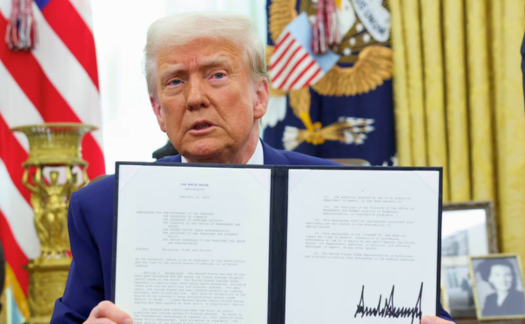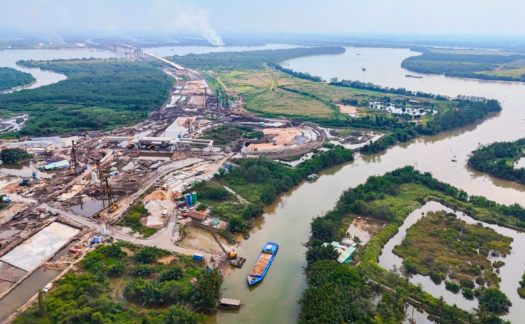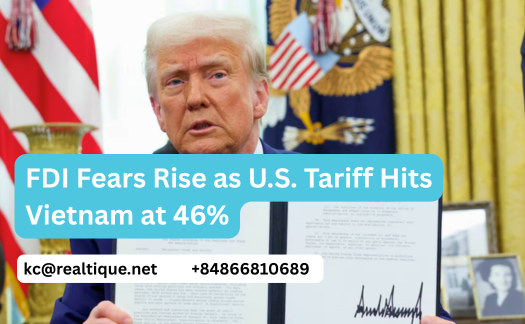FDI Fears Rise as U.S. Tariff Hits Vietnam at 46%
Vietnam’s real estate market faces FDI uncertainty as U.S. imposes 46% retaliatory tariff. Experts warn of capital shifts and cooling investor sentiment.

Table of Contents
U.S. Tariffs Threaten Vietnam's Industrial Real Estate
Vietnam’s booming industrial real estate market is facing a major test following the U.S. announcement of retaliatory tariffs, with Vietnam hit hardest—at 46%.
On April 2, former U.S. President Donald Trump declared new import tariffs ranging from 10% to 50% on over 180 trading partners. Vietnam finds itself at the top of the list, with a steep 46% rate.
According to Pham Lam, Vice Chairman of the Vietnam Real Estate Association, while it’s too early to gauge the full impact, investor sentiment has already taken a hit. The immediate concern is the potential rerouting of foreign direct investment (FDI) to other Southeast Asian nations.
“Without FDI flowing in, demand for land, industrial parks, and rental properties could stagnate,” he warned. “This would increase inventory and delay new industrial development across key hubs like Bac Ninh, Bac Giang, Hai Phong, Long An, and Binh Duong.”
DKRA Group’s Investment Director, Vo Hong Thang, echoed this sentiment. He emphasized that not only industrial zones but also commercial real estate and housing markets could see slower growth if FDI inflows weaken post-tariff implementation.
Risk of Losing Global Capital: 'Nest Built, But No Eagle Arrives'

In recent years, Vietnamese developers have poured significant capital into building industrial zones, hoping to attract multinational giants. With this new tax policy in effect (since April 9), that vision may not materialize.
Thang explained, “We risk a scenario where the nest is built, but the eagle never arrives.” This metaphor captures the fear of idle investment if global corporations redirect to more tax-friendly regions like Indonesia or the Philippines.
The broader property market—spanning residential, commercial, and even tourism-linked real estate—could also feel the pinch. In the short term, sentiment among investors and homebuyers is likely to turn cautious, impacting liquidity.
Rental markets, particularly serviced apartments, short-term leases, and foreign-owned housing, may also face turbulence. With fewer expats entering the country for work, the demand for such properties could taper off.
Three Scenarios That Could Shape the Market
Southern market expert Đinh Minh Tuan from Batdongsan outlined three possible outcomes for Vietnam’s real estate sector:
Worst-Case Scenario:
If the 46% tariff remains unchanged, FDI may shrink significantly. Smaller developers could suspend new launches and focus on current inventories. Supply-demand mismatches may worsen, cooling the entire property sector.Moderate Scenario:
If negotiations reduce the tariff to around 20%, some investor anxiety will ease. However, short-term challenges remain, and transaction volumes may still dip.Best-Case Scenario:
A rollback to 15% or lower would cushion Vietnam’s real estate market from major shocks, maintaining investor confidence and FDI momentum.
Even in the best case, Tuan advised developers to restructure financially, diversify products, and prioritize end-user housing—less exposed to speculative trends and more in line with practical market needs.
Thinking about investing in Vietnam’s real estate market?
🏘️ Let Realtique guide you with expert insights, trusted advice, and tailored property options for overseas investors.






